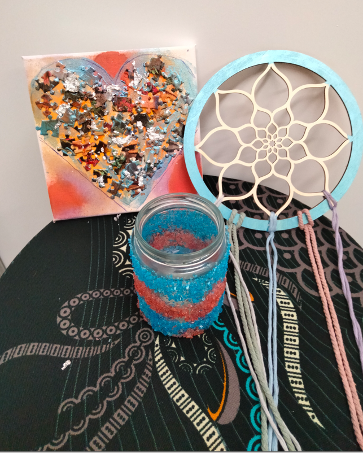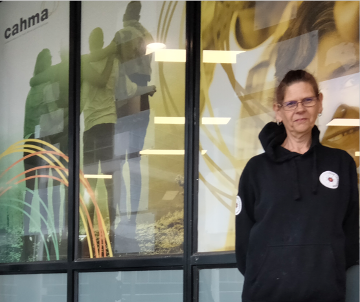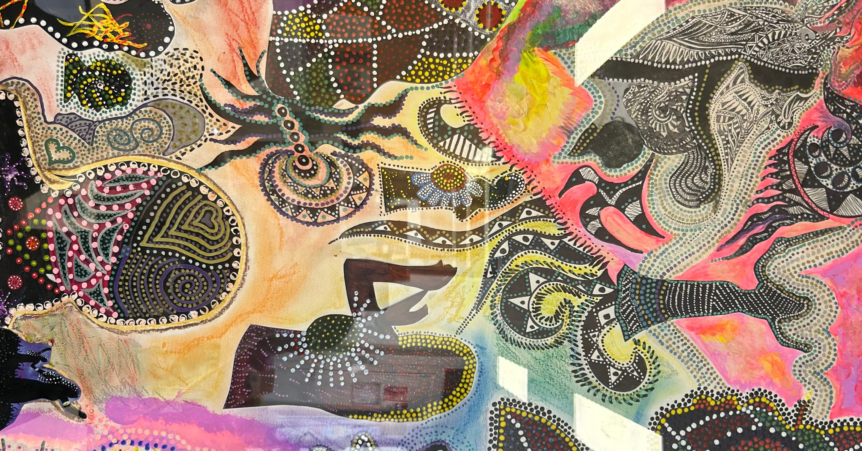AIVL recently yarned with Monica Ruffy about her work through CAHMA and The Connection with a peer-based support group for mothers who use drugs, based in Canberra: The Jude Byrne Women’s Group, A group for women with AOD and Care and Protection involvement.
AIVL: First up Monica, I’d like to acknowledge that I’m on Gadigal Land, and pay my respects to Elders, past, present and emerging. I’d also like to pay my respects to you. This land was never ceded. There has never been a treaty. Always was, always will be, Aboriginal land.
Monica: Thank you for that acknowledgement!
AIVL: So how did The Jude Byrne Women’s Group come into being?
Monica: I noticed that our female clients were suffering due to the lack of understanding by Child Protection (CP) workers of harm minimization practices. Our female clients felt discriminated by the child protection workers.

AIVL: Sounds like you and your clients were having some negative outcomes engaging with Child Protection.
Monica: The child protection system assumes because women use drugs, they are bad parents, and this is simply not true. Child Protection workers can often display inherent prejudice and mistrust regarding people who use drugs. Workers rarely have an understanding of harm reduction practices and are only interested in abstinence-based treatment options.
AIVL: Do you think that our people who are Aboriginal and/or Torres Strait Islander are treated differently by CP?
Monica: Absolutely! If a family happens to be from a lower socioeconomic background or identify as First Nations they are often subject to significant discrimination and have their children removed at a higher rate.
AIVL: What have been some of the challenges you’ve faced in getting it to where it is now?
Monica: Some of the challenges we have had in the planning and running of the Jude Byrne women’s support group have been the product of the Government mandated lockdowns relating to COVID-19. The first two planned groups had to be cancelled due to Covid lockdowns. We then had to rejig our meetings due to the restrictions on numbers of people in the room and room size.
We also faced a hurdle around venue hire. As the first group was a pilot group, we had no money to hire a venue. We held the first group in the boardroom of the CAHMA office in Belconnen.
Another major challenge we had was women knowing each other and having conflict outside of the group. The conflict spilled into the group. We were able to work with the concerned parties and provide an arrangement that alleviated this tension between attendees.
AIVL: What are some of your “Memorable Moments” of running this group?
Monica: How engaged the group members were! They loved coming together every week and sharing what had occurred during the past week: how they had used the tools they had learnt the previous week at home with their partners or children or workers from Child protection. Another highlight was seeing the women’s faces when they did the art projects at the end of each session. A lot of the women didn’t think they could make anything and then seeing the result of what they made and the fact that they could do it was great.
AIVL: What changes would you like to see as a result of your work?
Monica: I would like to see the governments look at this on a more holistic level and see that women who use drugs are good parents just like everyone else.
AIVL: Who can people get in touch with if they want to know more about this program?
People can get in touch with me if they like! My email address is monicar@cahma.org.au.
If you want to find out more about our service, you can check out our webpage at Canberra Alliance for Harm Minimisation & Advocacy | CAHMA .
AIVL: Hey thanks Monica for yarning with us about this amazing program! Please keep us updated about it. Love to know how its going!
Monica: You’re welcome!

About Monica
Monica Ruffy is a proud first nations women from the Yuin Nation, on her mother’s side of the family and a proud Brit on her father’s side of the family. Most of her family still live in Essex and London.
Monica Currently works as an Aboriginal Peer support worker at CAHMA and The Connection, and has been with CAHMA for approximately 5 years. Before this Monica worked in Mental health and as a family support worker.
Monica is currently studying the Bachelor of Social Work specializing in Australian Indigenous Welfare at Charles Sturt University. She also holds an Advanced Diploma in Community Welfare and a Certificate 4 in Mental health.
Monica is very passionate about working with families, especially families with children with disabilities and families involved in the care and protection system.
For further information, you can contact Monica via email: monicar@cahma.org.au

